

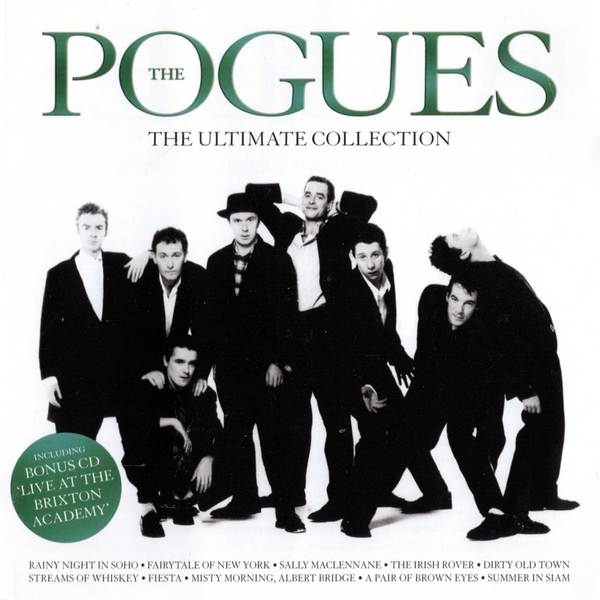
|
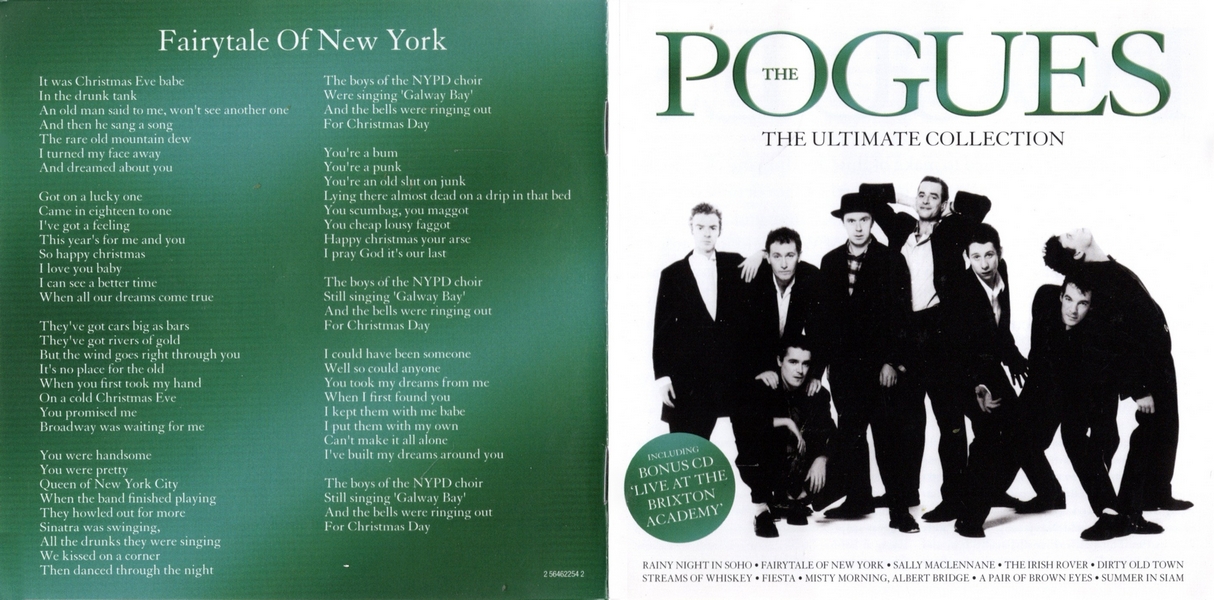
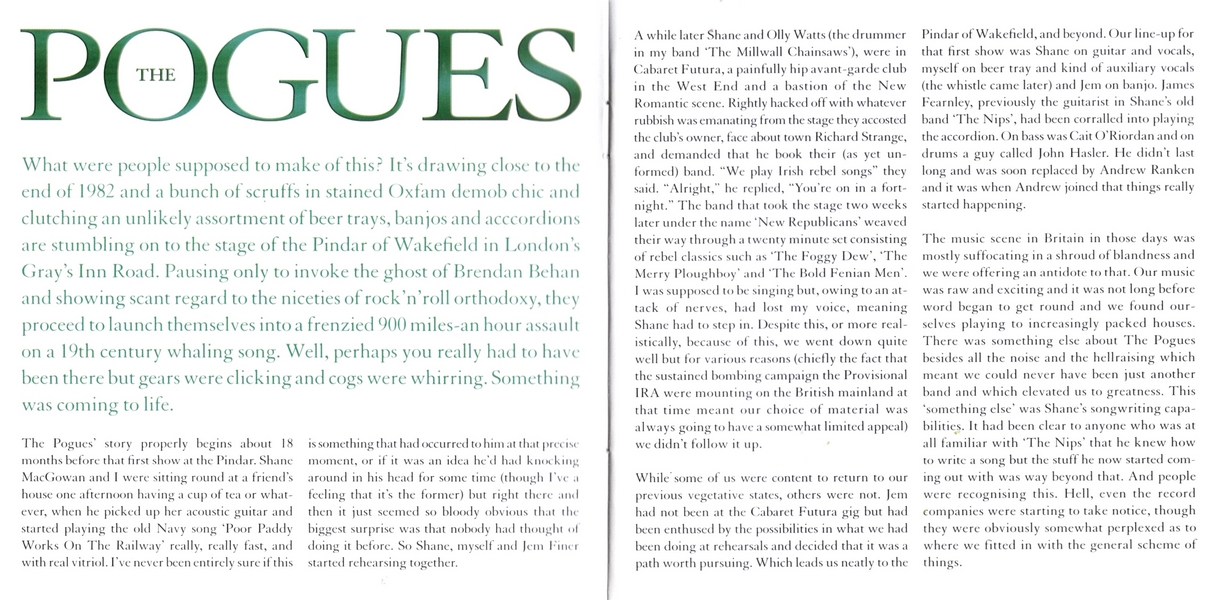 |
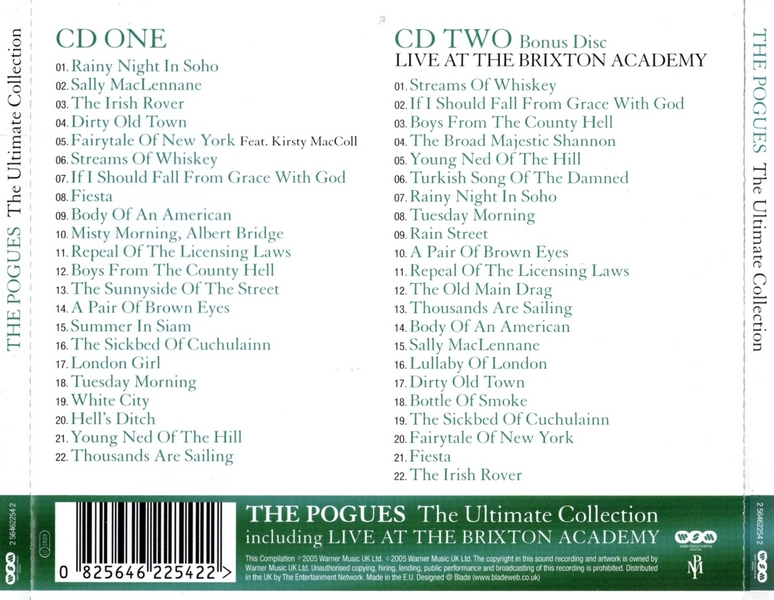
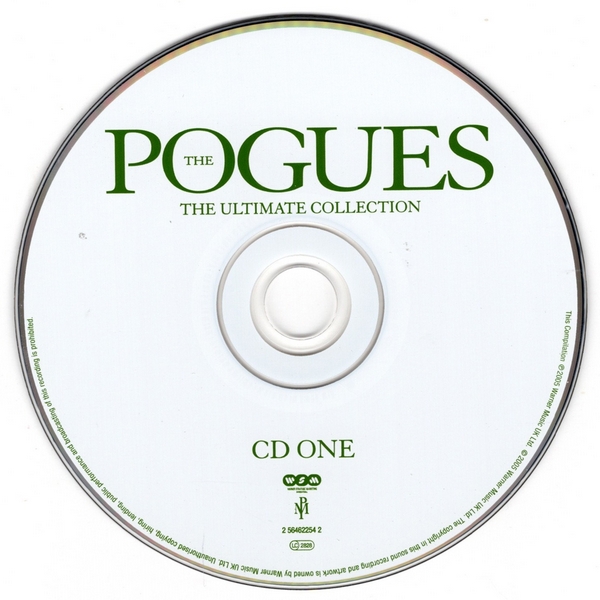
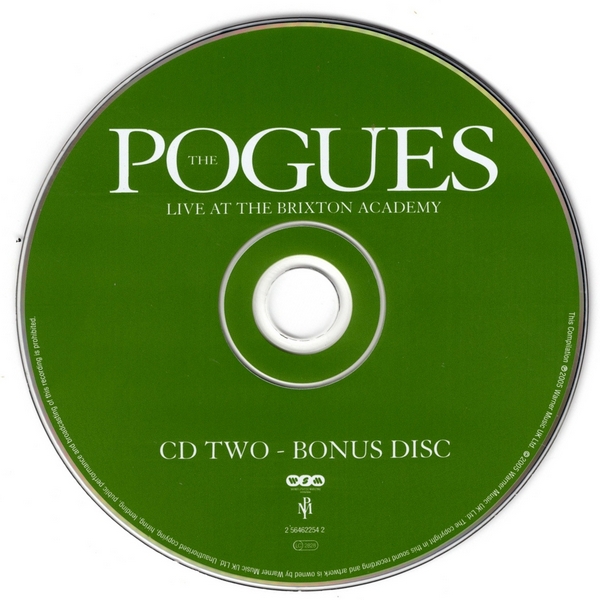
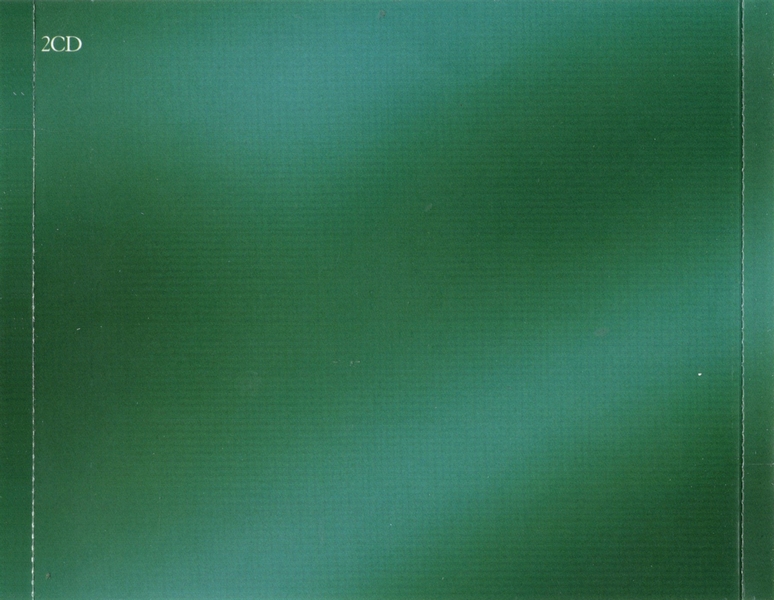
|
| more images |
What were people supposed to make of this? It's drawing close to the end of 1982 and a bunch of scruffs in stained Oxfam demob chic and clutching an unlikely assortment of beer trays, banjos and acccordions are stumbling on to the stage of the Pindar of Wakefield in London's Gray's Inn Road. Pausing only to invoke the ghost of Brendan Behan and showing scant regard to the niceties of rock'n'roll orthodoxy, they proceed to launch themselves into a frenzied 900 miles-an hour assault on a 19th century whaling song. Well, perhaps you really had to have been there but gears were clicking and cogs were whirring. Something was coming to life.
The Pogues' story properly begins about 18 months before that first show at the Pindar. Shane MacGowan and I were sitting round at a friend's house one afternoon having a cup of tea or whatever, when he picked up her acoustic guitar and started playing the old Navy song 'Poor Paddy Works On The Railway' really, really fast, and with real vitriol. I've never been entirely sure if this is something that had occurred to him at that precise moment, or if it was an idea he'd had knocking around in his head for some time (though I've a feeling that it's the former) but right there and then it just seemed so bloody obvious that the biggest surprise was that nobody had thought of doing it before. So Shane, myself and Jem Finer started rehearsing together.
A while later Shane and Olly Watts (the drummer in my band 'The Millwall Chainsaws'), were in Cabaret Futura, a painfully hip avant-garde club in the West End and a bastion of the New Romantic scene. Rightly hacked off with whatever rubbish was emanating from the stage they accosted the club's owner, face about town Richard Strange, and demanded that he book their (as yet unformed) band. "We play Irish rebel songs" they said. "Alright," he replied, "You're on in a fortnight." The band that took the stage two weeks later under the name 'New Republicans' weaved their way through a twenty minute set consisting of rebel classics such as 'The Foggy Dew', 'The Merry Ploughboy' and 'The Bold Fenian Men'. I was supposed to be singing but, owing to an attack of nerves, had lost my voice, meaning Shane had to step in. Despite this, or more realistically, because of this, we went down quite well but for various reasons (chiefly the fact that the sustained bombing campaign the Provisional IRA were mounting on the British mainland at that time meant our choice of material was always going to have a somewhat limited appeal) we didn't follow it up.
While some of us were content to return to our previous vegetative states, others were not. Jem had not been at the Cabaret Futura gig but had been enthused by the possibilities in what we had been doing at rehearsals and decided that it was a path worth pursuing. Which leads us neatly to the Pindar of Wakefield, and beyond. Our line-up for that first show was Shane on guitar and vocals, myself on beer tray and kind of auxiliary vocals (the whistle came later) and Jem on banjo. James Fearnley, previously the guitarist in Shane's old band 'The Nips', had been corralled into playing the accordion. On bass was Cait O'Riordan and on drums a guy called John Hasler. He didn't last long and was soon replaced by Andrew Ranken and it was when Andrew joined that things really started happening.
The music scene in Britain in those days was mostly suffocating in a shroud of blandness and we were offering an antidote to that. Our music was raw and exciting and it was not long before word began to get round and we found ourselves playing to increasingly packed houses. There was something else about The Pogues besides all the noise and the hellraising which meant we could never have been just another band and which elevated us to greatness. This 'something else' was Shane's songwriting capabilities. It had been clear to anyone who was at all familiar with 'The Nips' that he knew how to write a song but the stuff he now started coming out with was way beyond that. And people were recognising this. Hell, even the record companies were starting to take notice, though they were obviously somewhat perplexed as to where we fitted in with the general scheme of things.
We put our first single, 'Dark Streets Of London' out ourselves and it was subsequently picked up by independent label Stiff Records, who eventually also released our first two albums, 'Red Roses For Me' and 'Rum, Sodomy and the Lash' in 1984 and 1985 respectively. During this time we played our first major tour of the UK and Ireland (as support to Elvis Costello, who also produced 'Rum, Sodomy and the Lash') and embarked upon the seemingly endless trek around continental Europe that was to occupy so much of the next twelve years or so.
We also acquired some new members. Jem had been on paternity leave for a tour of Germany and Scandinavia and his place had been taken by Philip Chevron, who had been a leading light in the 'Radiators From Space', Ireland's first (and best) punk band. Phil slotted in so well that it was never a question of if he should become a permanent fixture but rather when.
Not long after this we were joined by Terry Woods, a friend of our then manager Frank Murray and a veteran of the Irish folk scene; he had been a founding member of 'Steeleye Span', 'The Woods Band' and the seminal 'Sweeney's Men'. With Philip on guitar and Woods on bouzouki, mandola, concertina and pretty much anything else you care to mention, we could broaden our horizons and by now we were really up and running. 1986 saw us heading to the States for the first time and also saw the end of our relationship with Stiff, which led to us having to do the sessions for the Poguetry In Motion' E.P in secret (though I've never been entirely sure why). This E.P. (again produced by Costello) features the cajunflavoured 'London Girl', an indication of our willingness to embrace different musical styles. It was also the last thing that we recorded with Cait, who left the band to get married. This was a real wrench but, fortunately, we had a ready-made replacement in Darryl Hunt, who had been with the band since the very early days, doing everything from driving the van to doing the sound and to playing bass (and drums) when the occasion had demanded it.
Next up was 'If I Should Fall From Grace With God', our first album for Warner Brothers. Produced by Steve Lilly white, this was the one that propelled us into the charts all over the world. It also contains what is unquestionably The Pogues' best-loved song, (as well, of course, as being the best Christmas song ever)'Fairytale Of New York'. It featured the wonderful, beautiful and sadly, sadly missed Kirsty MacColl who surely needs no introduction now and the rest of the album shows a band at the top of their game, ready to take on the world.
Unfortunately, taking on the world when you're in a rock'n'roll band means having to drag your bones all over it and that's exactly what we did. Over the twelve months following the release of 'If I Should Fall From Grace With God' we never stopped and, to be honest, it took it's toll. Philip had to miss an entire US tour due to illness, his place being taken by the great Joe Strummer, who had become a firm friend of the band during the shooting of 'Straight To Hell', Alex Cox's spoof spaghetti western in 1986. But Philip was far from being the only one to suffer.
Touring commitments meant we were unable to return to the studio until 1989. When we did, for the Lillywhite-produced 'Peace and Love', it was obvious that, despite the rigours of our constant journeying across the face of the planet, we were still capable of making a great record. Tracks such as 'White City', the gorgeous 'Misty Morning, Albert Bridge' (written by Jem) and Terry's stirring, pike-down-from-the-rafters 'Young Ned of the Hill' are eloquent proof of that.
But cracks were appearing. Whilst 1990's 'Hell's Ditch', produced by Joe Strummer in the bucolic, football-soaked ambience of Rockfield Studios, down in the Welsh borders during that summer's World Cup campaign, is probably the most underrated Pogues album, containing as it does songs ranging from the understated beauty of 'Summer In Siam' to the murderous violence of the title track, it was to be our last with Shane. It had been apparent for some time that Shane's appetite for the pleasures of life on the road were waning, though he was hardly alone in that, but he seemed now to be getting more and more disillusioned with the whole thing. Matters came to a head during a trip to Japan the following year and, without any viable alternative presenting itself, we decided to part company.
We had a glorious but all-to-brief interregnum with Joe as our singer and, after his departure, I took over for 'Waiting For Herb', released in 1993. This featured 'Tuesday Morning', which reached the dizzy heights of number 18 in the UK singles chart that year, but by now our impetus had slowed and we were shedding members at an alarming rate. James, Philip and Terry left in rapid succession. 'Pogue Mahone' (1996) was our seventh and final studio album and whilst probably stronger overall than its predecessor, by this time we had all had enough. It was time to go under the hill and sleep, until we were needed again.
Spider Stacy, February 2005